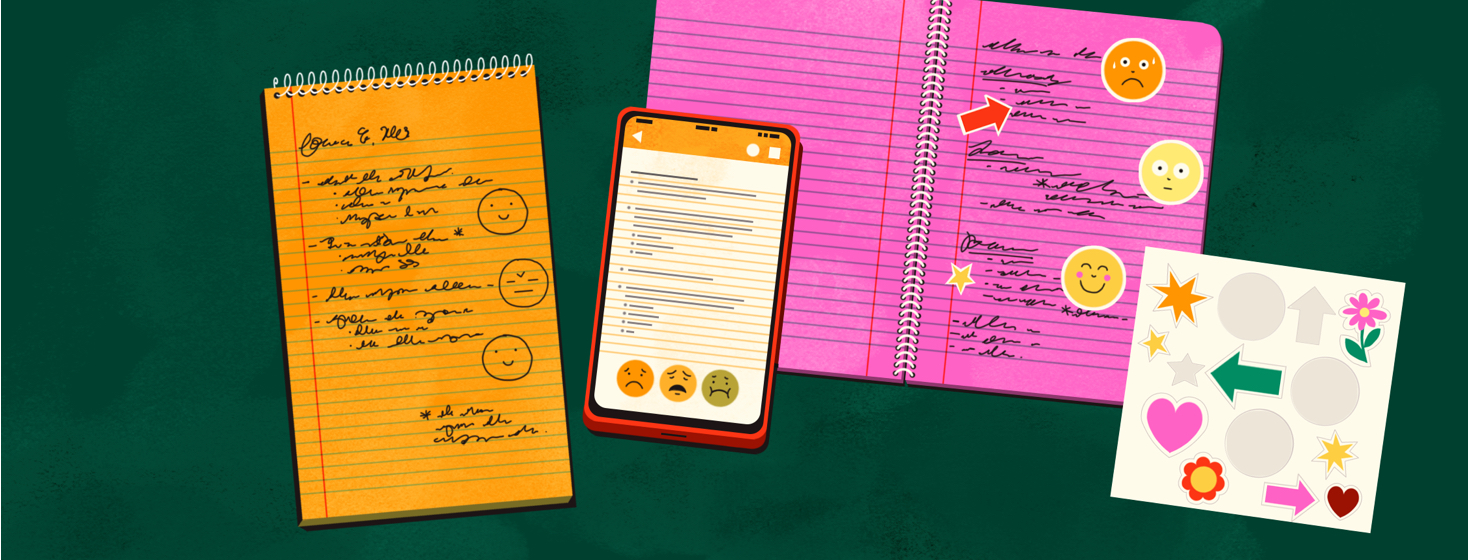Managing Lupus With Symptom Tracking
One of the most difficult aspects of my journey with lupus is keeping track of my symptoms and communicating them to my doctor. Because of that, I keep a variety of diaries. From a meal diary to a symptom diary, to a mood notebook. Accumulating an abundance of documents and books detailing my feelings and symptoms has become cumbersome. In fact, it became overwhelming at times. I resolved that I had to find a different way to manage my lupus. One that didn’t require me to carry a bunch of papers and notebooks with me.
Speaking to my doctor
I like to have precise interactions with my physician. In light of that, I had to have thorough documentation of everything that happened since my previous appointment. Tired of dragging all of my papers and diaries to each appointment, I needed a change. Additionally, it became a time-consuming action that did not always function well. In reality, visiting my physician while carrying a pail of journals has been a pain. I would always forget things or be unable to read my own writings. I've felt as if everything was cluttered on paper and jumbled in my thinking and reactions to lupus.
Taking action to prevent lupus flares
I needed to take action to keep all of that critical information in one place. To assist me, I started looking for anything that would enable me to have the knowledge at my fingertips. It was essential for me to have easy access to my notebooks and documents detailing my symptoms and emotions. This way, when I had appointments, I could just bring it up and explain the patterns to the doctor. I understood that planning in this manner would be an effective strategy to assist me in managing my care and preventing some flares.
Importance of symptom-tracking
Maintaining accurate records of your symptoms is crucial for evaluating how active your lupus is. It's important to distinguish between new and existing symptoms. Additionally, it can be beneficial in identifying what may be causing your flares.
How to track symptoms
I began to make notes to record things like the date, time, and events that occurred. Noting what I ate and how it made me feel. Touching on the weather and my degree of stress. This information was critical since I knew my symptoms might occur without any major change in lupus in my body. But also realizing lupus can still progress without any major changes in symptoms. In general, whether I needed to present the information to my doctor or just utilize it for myself, having this information and knowledge was important to me in managing my lupus.
Important factors that helped me track lupus symptoms
You may enjoy writing your symptoms down. I could not keep another book on me when visiting the doctor. It was more efficient for me to rely on technology to get that done. I finally discovered what I was looking for on an app called Aila Health. Aila Health is a virtual health platform that provides individualized healthcare to people with autoimmune and chronic illnesses. It provides a space to log your symptoms and other important health information in one place. Not only is information easy to access, but I can carry all of my needed information in the palm of my hand. This helped me to be better educated, prepared, and empowered as I managed my lupus. Managing my symptoms digitally has helped me stay on top of my health. It has become an integral part of identifying flares and trends.
That empowered feeling
In detail, there is something empowering about keeping track of symptoms. Seeing the trends and knowing what may have caused a flare gives me a sense of control. I am able to understand my body more and help explain my symptoms to my doctor in a concise way. In turn, this gives pertinent information that can assist to acquire better lupus treatment.
In view of all of those things, tracking symptoms gives a way to fight back against lupus. It removes the hopeless and helpless feeling that can come over us in our lupus journey.

Join the conversation